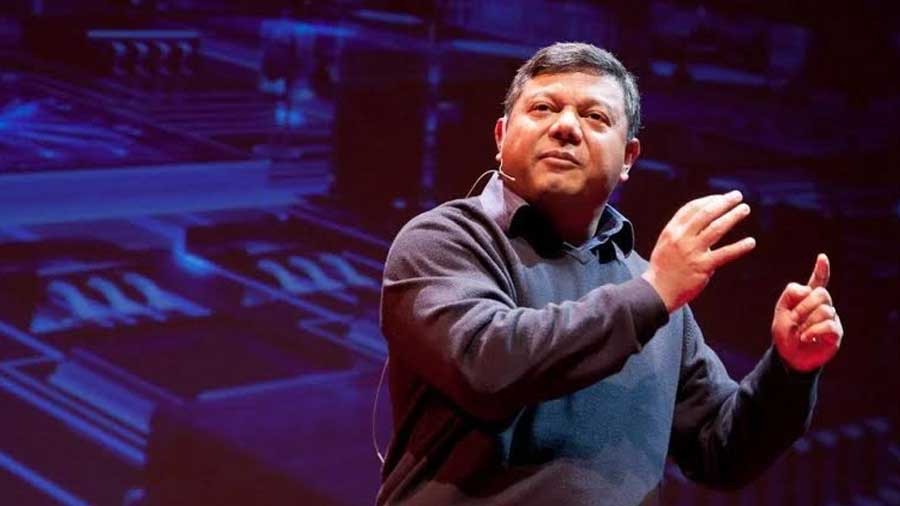- He was recently named a volunteer member of the Joe Biden presidential transition agency to support the efforts related to the United States Department of Energy, Federal Energy Regulatory Commission and the Nuclear Regulatory Commission.
- He was nominated by President Barack Obama in 2009 to become the founding director of the Advanced Research Projects Agency–Energy, and was also an acting under-secretary in the US government for a year.
And what gives him the ‘energy’ to keep going?
Well, some Bhapa Ilish and Gondhoraj Murgi from 6 Ballygunge Place and some Baked Mihidana from the Biswa Bangla Mishti Hub!
Meet Kolkata boy Arun Majumdar, now based in California, whose frequent trips back to his hometown translates largely to food and family, in either order.
A materials scientist, engineer and now a Jay Precourt Provostial Chair Professor at Stanford University, adda sessions with cousins over maachh and murgi and mishti remain a big draw in Kolkata.
Majumdar, whose father was the Civil Aviation Director of India and also a UN official, has travelled and lived around the world. His mother, who was from Narayangunj, Dhaka, later lived quite a bit of her life in Dum Dum and Salt Lake in Kolkata before moving to the U.S. Majumdar himself has lived in Delhi, Mumbai, Trinidad and London, but still loves Kolkata.
My Kolkata caught up with Arun Majumdar for a zoom adda.
You are the Jay Precourt Provostial Chair Professor at Stanford University, a faculty member of the Departments of Mechanical Engineering and Materials Science and Engineering and Senior Fellow and former director of the Precourt Institute for Energy; you are also a faculty in the Department of Photon Science at SLAC. Please could you decode this for our readers?
It reflects various appointments within Stanford University Departments (Mechanical Engineering, Material Science and Engineering, and also the Precourt Institute of Energy, which is a campus-wide effort). SLAC is a national laboratory of the US Department of Energy, which is managed by Stanford University.
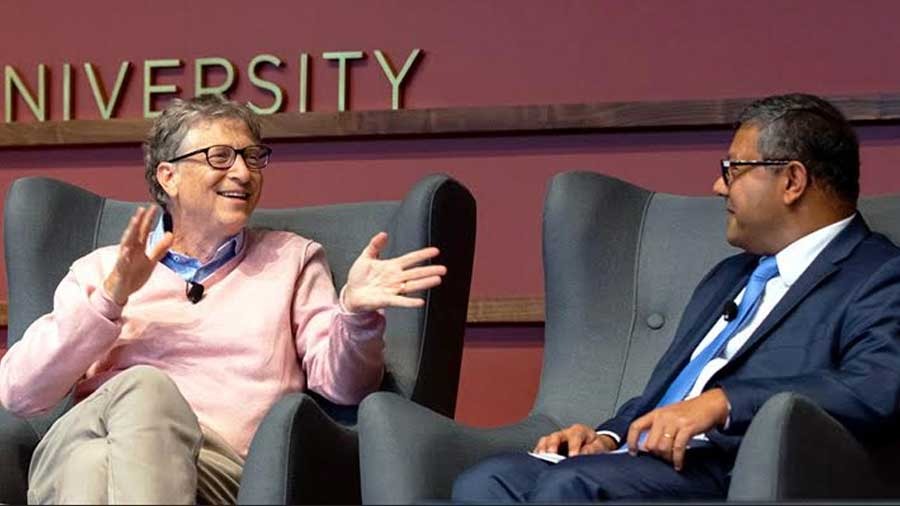
Majumdar in conversation with Bill Gates at Stanford University @StanfordEnergy/Twitter
As a volunteer member of the Joe Biden presidential transition agency to support the efforts related to the Department of Energy, Federal Energy Regulatory Commission and the Nuclear Regulatory Commission, what was your role and responsibility?
The role was to evaluate the state of these various Federal Agencies and what approaches are needed to transition these agencies to execute on the policies of President Biden and any new roles and responsibilities created by the Legislative Branch (Congress). The role was terminated in January 2021 when the transition was completed and President Biden took over as President.
'On Air Force 2, had a terrific discussion with Vice President Biden on the role of technology innovations in energy'
What have your interactions with President Biden been like?
My direct interactions with President Biden happened when he was the Vice President and when I was in Washington D.C. He was responsible for executing on the American Recovery and Reinvestment Act (ARRA or Recovery Act) of 2009. I was asked to lead ARPA – E (Advanced Research Projects Agency – Energy), which was initially funded by ARRA. I also had the privilege of travelling with him on Air Force 2 and during that trip we had a terrific discussion on the role of technology innovations in energy on economic growth, environmental security and national security. As usual, there were some food discussions too (laughs).
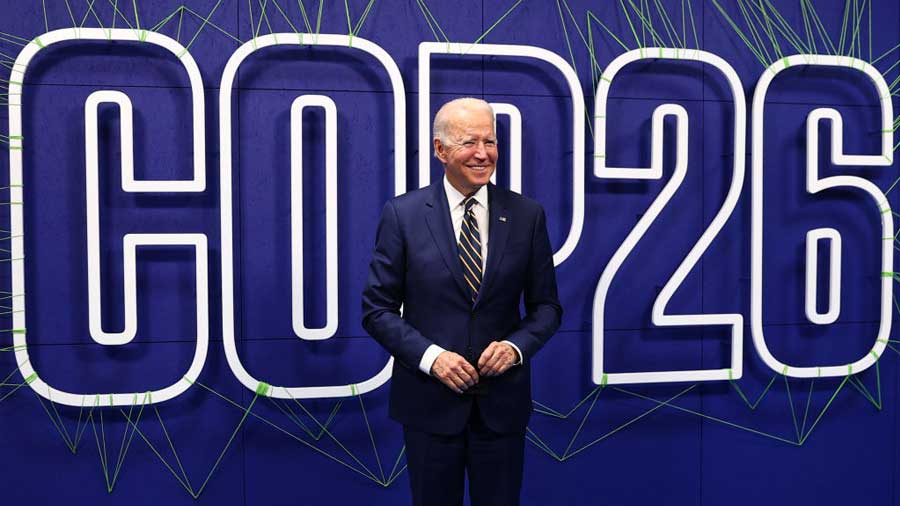
U.S. President Joe Biden at the COP26 UN Climate Summit in Glasgow. Majumdar’s role in the presidential transition agency was to evaluate what approaches are needed to transition federal energy agencies to execute the policies of President Biden Adrian Dennis/Getty Images
From one president to another, what was it like to be nominated by President Obama as the founding director of an Advanced Energy Research body and what were your interactions with him like?
My interactions with President Obama too happened while I was in Washington DC. After three years serving the Obama administration, I was thinking of leaving Washington to return home to my family in California. Things had gone very well and President Obama wanted to see if I could stay longer. We had a few discussions at that time and he was very thankful and gracious of my service to his administration.
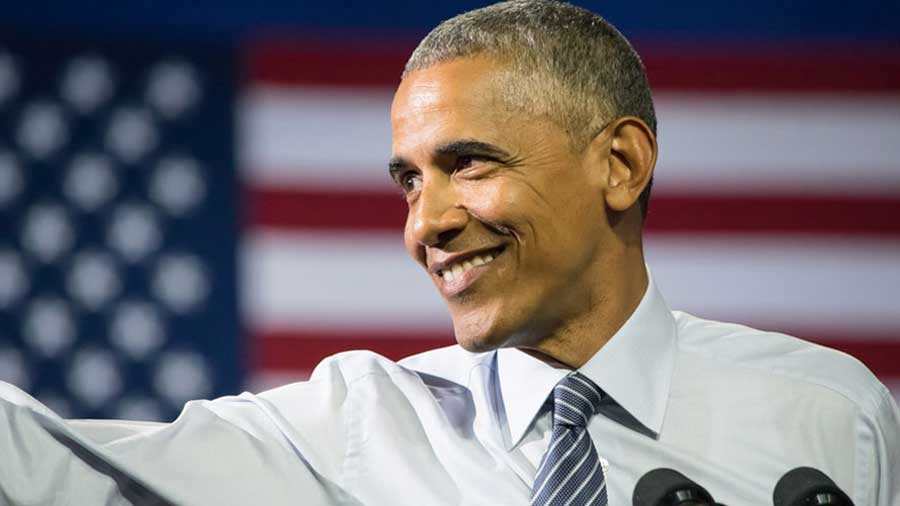
In 2009, President Barack Obama nominated Majumdar as the founding director of the Advanced Research Projects Agency–Energy Shutterstock
'Will require transformational changes in people’s behaviour and lifestyle'
Cutting to the present energy crisis the world is grappling with, how would you assess the recent COP 26 Summit in Glasgow?
I think the COP 26 Summit achieved quite a lot, especially for net zero emission countries including India’s commitment till 2070. In some ways, this is a small step towards the need for global economic changes but the key will be policy measures and a roadmap to net-zero aspirations. There needs to be global governance of multiple issues such as carbon credits etc.
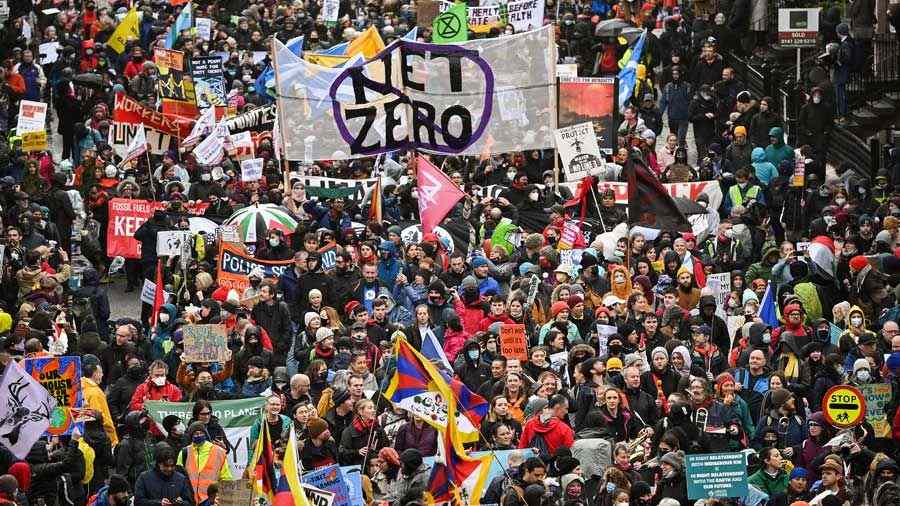
Climate protesters march in Glasgow, on the sidelines of COP26 Summit Jeff J Mitchell/Getty Images
Is there enough awareness about climate change?
People are certainly discussing changes in weather patterns and they are slowly and steadily connecting it to climate change. Climate-induced extreme weather events such as massive heat and humidity waves or extreme cold ways are affecting people’s lives. The next 10-20 years will be extremely critical and one which will require transformational changes in people’s lives including their own behaviour and lifestyle.
'The built environment of homes and offices in Kolkata need to be made energy-efficient'
What changes would you prioritise in, say, a Kolkata?
The built environment of homes and offices need to be made energy-efficient with proper design and energy use. Also, new ways of cooling and air conditioning that do not use traditional refrigerants. There is an urgent need for decarbonising electrical grid, steel, cement and petrochemical manufacturing, and also reducing methane emissions from livestock and rice.
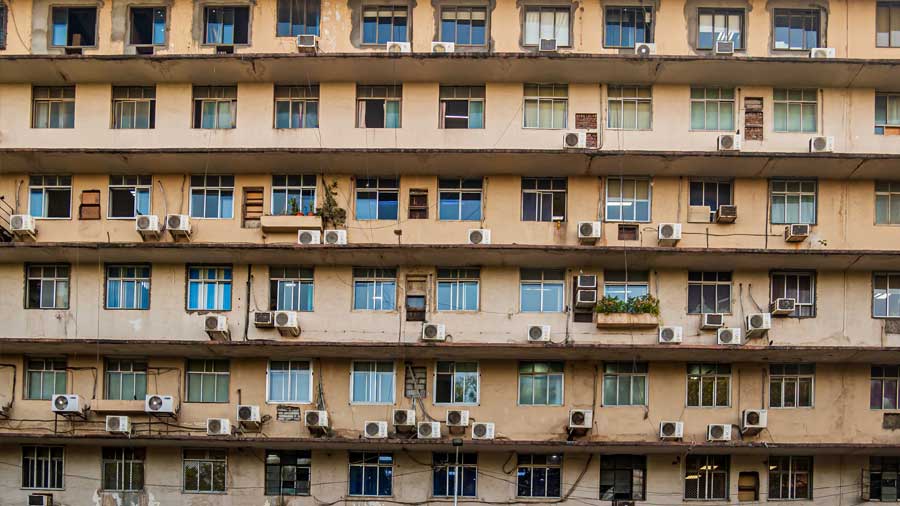
New ways of cooling and air conditioning that do not use traditional refrigerants should be a priority for Kolkata, says Majumdar Shutterstock
Talking of Kolkata, what are your best memories of spending time in the city during your growing-up years?
I didn’t spend my entire childhood in Kolkata. In bits and pieces, but the best memories of Kolkata have always been attending elder cousins’ weddings. We would always be curious about the food at all the meals pre- and post-weddings as it happens in all Bangal families! Of course, the natural ribbing with cousins would be the other best memory because that’s one time when everyone would be under one roof. That continues even now.
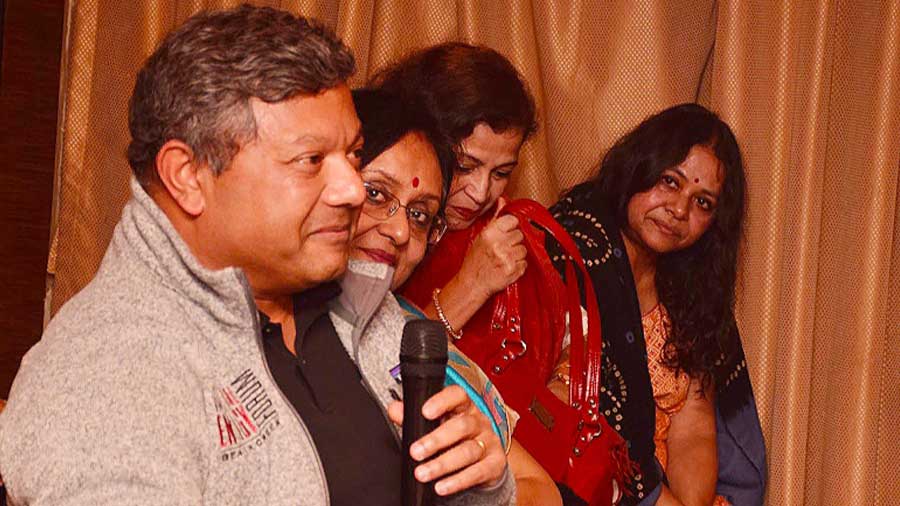
Majumdar with his relatives at Conclave, during a visit to Kolkata
What is your Kolkata connect now? Family, friends….
After my mother passed away, my cousins and a few uncles and aunts who are there remain my connect to Kolkata.
What are the things you miss the most about the city?
Since I have lived in many cities, it’s not anything in particular but maybe the food is something I miss most about Kolkata.
'My love for mishti is well known, especially the Baked Mihidana'
What are the must do/must eat/must meet… when you manage to come down these days?
Meet and sweets of course – in any order. Must meet is always cousins. In fact, I make a special effort to meet them if I am ever in India. Which has been quite often over the last few years.
If there is one thing from Kolkata you carry back to California, it is… ?
My love for mishti is well known, especially the Baked Mihidana, and I usually pick up a wide variety from the Biswa Bangla Mishti Hub on my way back to the airport.

‘My love for mishti is well known, especially the Baked Mihidana… from Biswa Bangla Mishti Hub,’ says Majumdar
What are the major points of difference in Kolkata back when you were a young boy and now?
Over 30 years, the major changes that I see here are of course the absence of load-shedding and the reliability of electrical power, the development of major bypasses and flyovers to reduce traffic, and attracting IT and other educational centres to Kolkata. I feel attracting a manufacturing base to the region would be very helpful for economic growth.
When I come to Kolkata, I live in Rajarhat and I am really happy to see the development of this part, especially New Town which looks so well planned. I am also happy to see some electrification in public transport.
'If the two/three wheelers in New Town can run on electricity that would be great'
Any thoughts on public transport here being more energy efficient?
If the two/three wheelers can run on electricity that would be great, as also long-distance trucking, which should ideally use a combination of batteries and clean hydrogen fuel.
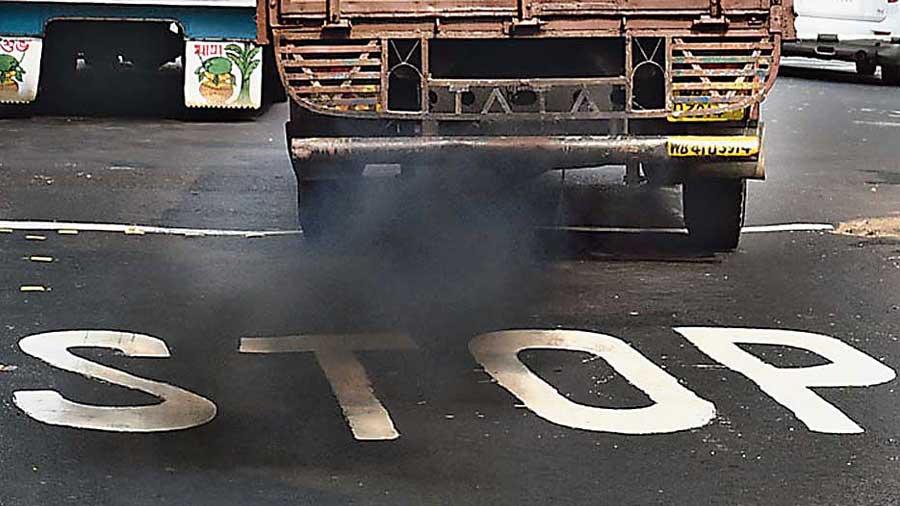
Electric/hydrogen-powered trucks are the need of the hour TT archives
What would you tell the young people in Kolkata who want to make a difference to climate change but don’t know where and how to start?
To address climate change, we certainly need new technologies, businesses and governments to transform our economy. But that is not enough. More importantly, we need individual responsibility to drive change. People need to lead a sustainable lifestyle so that what people consume and how they live their life can make a big difference on sustainability. They can create the demand for sustainable products and services and they will drive change through the supply chain in businesses. So, use people power to drive change.
Personally, what are your hobbies and interests? How do you switch off?
Sports (watching and playing), movies, snorkelling and other water activities and travelling. I used to play cricket in my college days. I don’t switch off, what’s that?!
Where do you see yourself in five years’ time?
Hopefully alive, healthy, enjoying life and a few kilos lighter.
